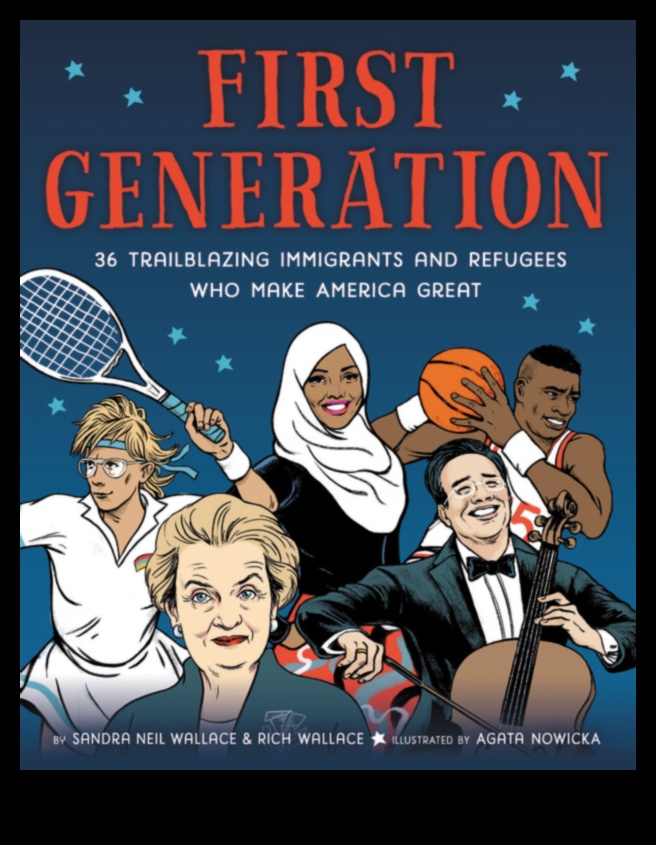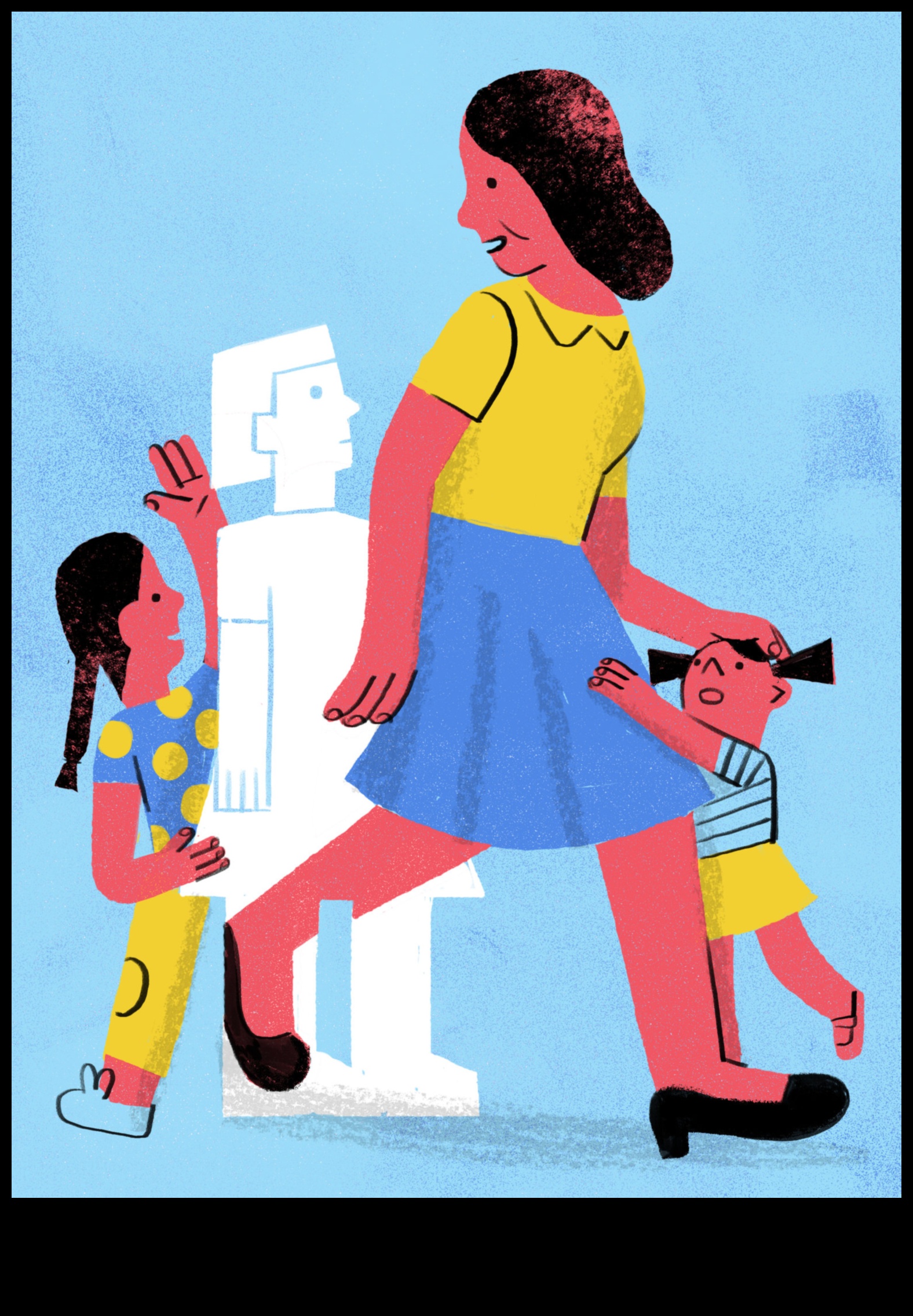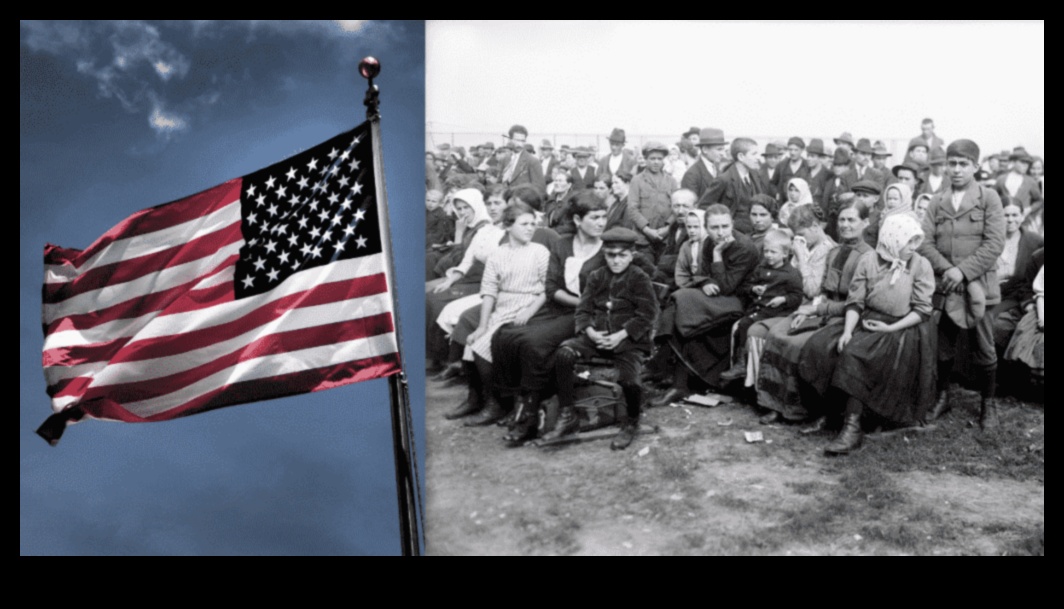
What is a first-generation immigrant?
A first-generation immigrant is someone who was born in a foreign country and has moved to another country to live.
First-generation immigrants often face unique challenges and opportunities as they adjust to their new country.
This article will discuss the definition of a first-generation immigrant, the experiences of first-generation immigrants, and the challenges they face.
It will also provide resources and support for first-generation immigrants.
| Feature | Definition |
|---|---|
| First-generation immigrant | An immigrant who was born in a foreign country and moved to their current country as a child or adult. |
| Immigrant | A person who has moved to a new country to live permanently. |
| Immigration | The process of moving to a new country to live permanently. |
| Migrant | A person who moves from one place to another, especially for work or to find a better life. |
| Newcomer | A person who has recently arrived in a new country. |

II. Advantages of being a first-generation immigrant
There are many advantages to being a first-generation immigrant. These include:
- A greater sense of appreciation for the opportunities that you have
- A stronger work ethic
- A more diverse perspective
- A greater sense of resilience
- A greater sense of community
First-generation immigrants often have a strong sense of appreciation for the opportunities that they have been given. They may have come from countries where opportunities were limited, so they are grateful for the chance to live and work in a more prosperous country. This appreciation can lead to a strong work ethic, as first-generation immigrants are motivated to make the most of their opportunities.
First-generation immigrants often have a more diverse perspective than those who were born in the country they now live in. They have experienced different cultures and have had to learn to adapt to new ways of life. This diversity can be a valuable asset in the workplace, as it can help to create a more inclusive and innovative environment.
First-generation immigrants often have a greater sense of resilience than those who were born in the country they now live in. They have had to overcome many challenges in order to achieve their goals, and this has made them more resilient to setbacks. This resilience can be a valuable asset in the workplace, as it can help people to stay motivated and focused on their goals.
First-generation immigrants often have a strong sense of community. They may have come to the country they now live in with little or no family or friends, and they have had to build a new community for themselves. This sense of community can be a valuable resource, as it can provide support and encouragement during difficult times.
III. Disadvantages of being a first-generation immigrant
There are a number of disadvantages to being a first-generation immigrant. These include:
- Language barriers
- Cultural barriers
- Discrimination
- Financial difficulties
- Lack of social support
- Isolation
- Homesickness
These disadvantages can make it difficult for first-generation immigrants to adjust to their new lives in a foreign country. However, it is important to remember that there are also many advantages to being a first-generation immigrant. These include:
- The opportunity to learn a new language and culture
- The chance to experience a new way of life
- The opportunity to contribute to your new country
- The opportunity to raise your children in a more diverse and tolerant environment
Overall, the decision to immigrate is a personal one. There are both advantages and disadvantages to being a first-generation immigrant. It is important to weigh the pros and cons carefully before making a decision.

II. Advantages of being a first-generation immigrant
There are many advantages to being a first-generation immigrant. These include:
- A greater sense of appreciation for the opportunities that you have been given.
- A stronger work ethic and drive to succeed.
- A more open-minded and tolerant perspective on the world.
- A greater appreciation for your cultural heritage.
- The opportunity to learn from the experiences of others and to make a positive contribution to your new community.

V. Success stories of first-generation immigrants
Here are some examples of success stories of first-generation immigrants:
* Sonia Sotomayor, the first Hispanic woman to serve on the Supreme Court of the United States, was born in the Bronx to Puerto Rican parents. She overcame poverty and discrimination to become a successful lawyer and jurist.
* Elon Musk, the founder of Tesla and SpaceX, was born in South Africa to a South African father and a Canadian mother. He immigrated to Canada at the age of 17 and later to the United States, where he became a successful entrepreneur.
* Michelle Obama, the first African-American First Lady of the United States, was born in Chicago to a black American father and a white American mother. She overcame racism and sexism to become a successful lawyer and community organizer.
* Mae Jemison, the first African-American woman to travel into space, was born in Decatur, Alabama to an African-American father and a white American mother. She overcame racism and sexism to become a successful astronaut.
These are just a few examples of the many successful first-generation immigrants who have made significant contributions to our society. They are proof that anything is possible if you work hard and never give up on your dreams.

VI. Tips for first-generation immigrants
Here are some tips for first-generation immigrants:
- Learn the language of your new country. This is essential for communicating with your new neighbors, coworkers, and government officials. There are many resources available to help you learn a new language, such as classes, online programs, and language exchange partners.
- Get involved in your community. There are many ways to get involved in your community, such as volunteering, joining a club or organization, or attending community events. This is a great way to meet new people, learn about your new country, and make a difference.
- Be patient with yourself. It takes time to adjust to a new country. There will be times when you feel frustrated or overwhelmed. Just remember that everyone goes through this at some point. Be patient with yourself and don’t give up.
- Seek out support. There are many resources available to support first-generation immigrants, such as government programs, community organizations, and religious groups. Don’t be afraid to reach out for help when you need it.
VII. Resources for first-generation immigrants
Here are some resources that can help first-generation immigrants:
- U.S. Citizenship and Immigration Services (USCIS) resources for new citizens
- National Association of Hispanic Americans (NAAA) resources for immigrants
- Immigrant Legal Resource Center (ILRC) resources for immigrants
- American Civil Liberties Union (ACLU) resources for immigrants
- New York State Nurses Association (NYSNA) resources for immigrants
Conclusion
First-generation immigrants have a unique set of experiences and challenges. They face discrimination, language barriers, and financial difficulties. However, they also bring valuable skills and perspectives to their new countries. By overcoming the challenges they face, first-generation immigrants can achieve great success.
IX. FAQ
What is a first-generation immigrant?
A first-generation immigrant is someone who was born in a foreign country and moved to another country to live.
What are the advantages of being a first-generation immigrant?
There are many advantages to being a first-generation immigrant, including:
- New opportunities
- A chance to learn a new language
- A chance to experience a new culture
- A chance to make a better life for yourself and your family
What are the disadvantages of being a first-generation immigrant?
There are also some disadvantages to being a first-generation immigrant, including:
- Challenges with language and culture
- Discrimination
- Financial difficulties
- Homesickness
What challenges do first-generation immigrants face?
First-generation immigrants face a number of challenges, including:
- Learning a new language
- Adapting to a new culture
- Finding a job
- Dealing with discrimination
- Raising a family in a new country
What are some success stories of first-generation immigrants?
There are many success stories of first-generation immigrants, including:
- Elon Musk, founder of Tesla and SpaceX
- Michelle Obama, former First Lady of the United States
- Madonna, singer and actress
- Sandra Oh, actress
What tips can you give to first-generation immigrants?
Here are some tips for first-generation immigrants:
- Learn the language
- Be open to new experiences
- Don’t be afraid to ask for help
- Be proud of your heritage
What resources are available for first-generation immigrants?
There are many resources available for first-generation immigrants, including:
- Government programs
- Non-profit organizations
- Community centers
- Schools
How can I help first-generation immigrants?
There are many ways you can help first-generation immigrants, including:
- Volunteer your time
- Donate to a non-profit organization
- Educate yourself about immigration
- Be an advocate for immigrants
X. Call to action
If you are a first-generation immigrant, you are not alone. There are many resources available to help you succeed. Here are a few tips:
- Find a support group or community of other first-generation immigrants.
- Reach out to your school or college for resources and support.
- Apply for scholarships and financial aid.
- Network with people in your field of interest.
- Don’t be afraid to ask for help when you need it.
Remember, you are capable of achieving anything you set your mind to. Don’t let your immigrant status hold you back.
FAQ
- What is a first-generation immigrant?
- What are the advantages of being a first-generation immigrant?
- What are the disadvantages of being a first-generation immigrant?
Answers
- A first-generation immigrant is someone who was born in a foreign country and moved to another country as a child or adult.
- There are many advantages to being a first-generation immigrant, including:
- A greater sense of appreciation for the opportunities you have in your new country.
- A stronger work ethic and drive to succeed.
- A more diverse perspective on the world.
- There are also some disadvantages to being a first-generation immigrant, including:
- Language barriers.
- Cultural differences.
- Discrimination.